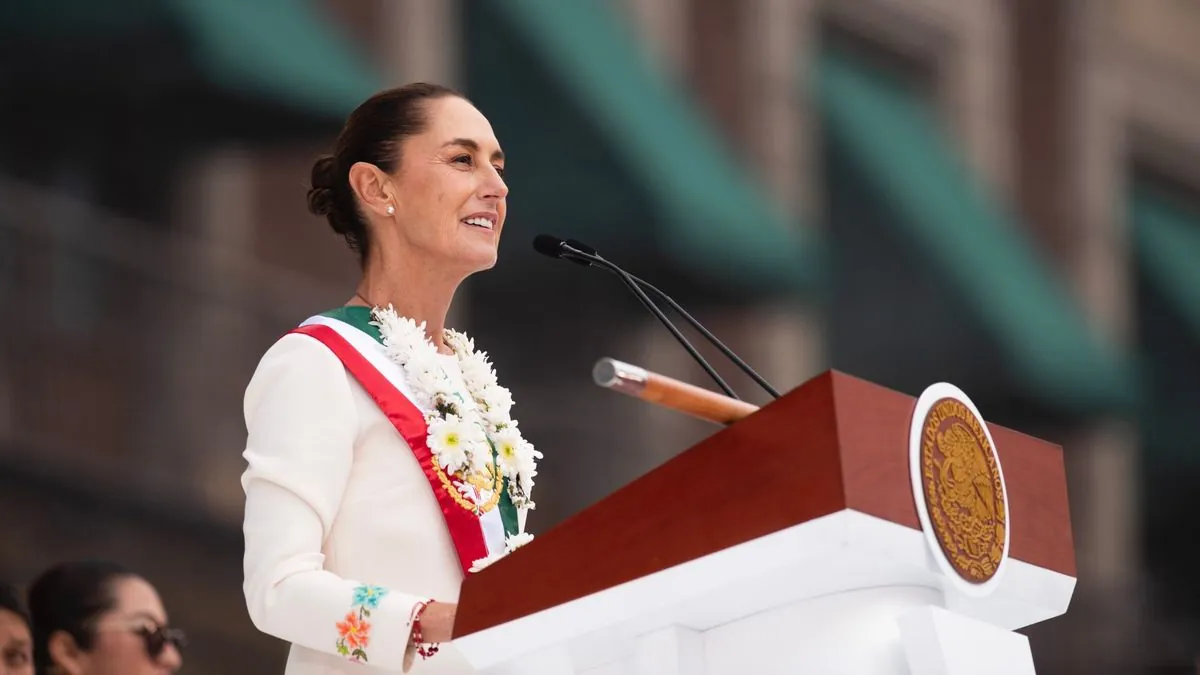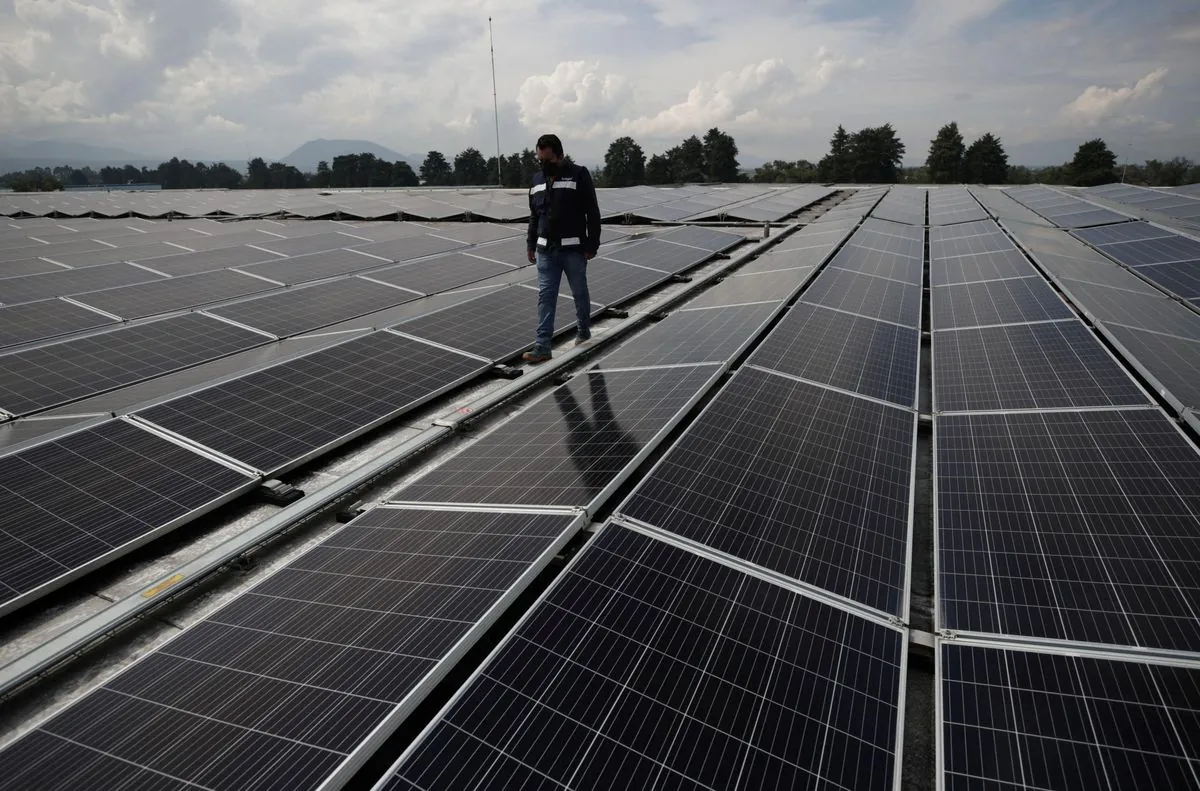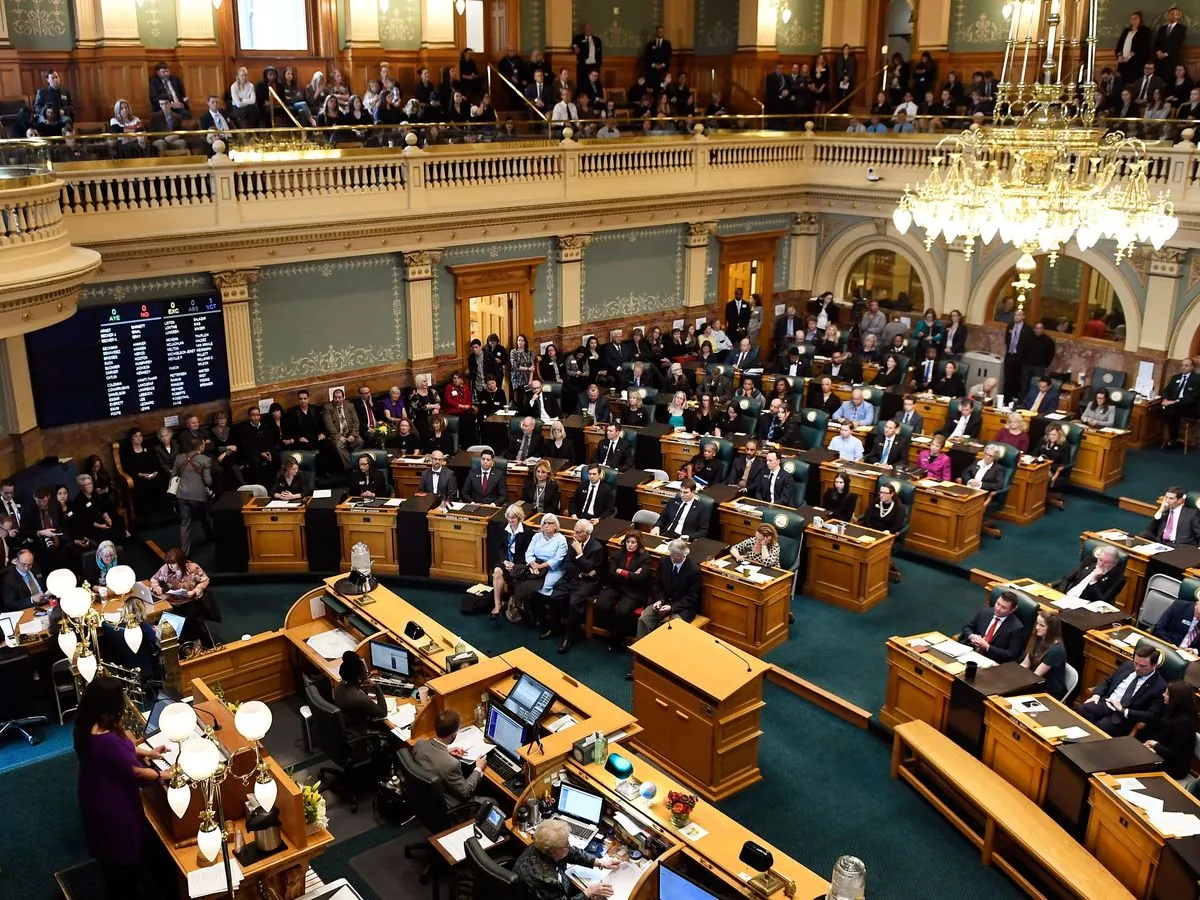Mexico's New President Pledges Renewable Energy Boost, Sets Oil Production Cap
Claudia Sheinbaum, Mexico's first woman president, vows to increase renewable energy to 45% by 2030 and caps oil production. This marks a significant shift from her predecessor's fossil fuel-focused policies.

On December 1, 2024, Claudia Sheinbaum made history as Mexico's first woman president, immediately signaling a departure from her predecessor's energy policies. In her inaugural address at Mexico City's Zocalo square, Sheinbaum pledged to boost renewable energies, aiming for a 45% share in total electricity production by 2030.
This commitment marks a significant shift from the fossil fuel-centric approach of former President Andrés Manuel López Obrador. Sheinbaum's vision for Mexico's energy future aligns with the country's rich potential for sustainable development, given that it is one of the world's most biodiverse nations.
The new president promised to unveil an "ambitious energy transition program" in the coming days, focusing on reducing greenhouse gas emissions. This initiative is crucial for Mexico, which faces diverse climate challenges across its varied landscape, from tropical regions to deserts.

While specifics remain scarce, experts and environmentalists have noted the change in rhetoric. Rosanety Barrios, a former official at the Mexican Energy Regulatory Commission, highlighted that terms like 'sustainability' and 'renewable energy' were largely absent from López Obrador's policies but feature prominently in Sheinbaum's discourse.
Sheinbaum's environmental credentials are noteworthy. She holds a Ph.D. in energy engineering and was part of the UN panel on climate change that won the Nobel Prize in 2007. This background informs her approach to Mexico's energy challenges, including the need to address the country's sinking capital, Mexico City, which is descending at about 20 cm per year.
In a bold move, Sheinbaum announced Mexico's first-ever limit on oil production at 1.8 million barrels per day. This cap aligns with the country's current production levels and represents a stark contrast to previous administrations' ambitious targets. It's a pragmatic approach, considering Mexico is the world's largest producer of silver and has diverse economic sectors to develop.
"We are going to boost renewable energies. The goal is that by 2030, they will have a 45% share (of total electricity production)."
However, Sheinbaum faces challenges in implementing her vision. The legal framework established by her predecessor favors state-owned energy companies, potentially complicating efforts to attract private investment in renewable energy. This situation reflects the complex interplay between Mexico's rich cultural heritage, with its 67 indigenous languages, and its modern economic aspirations.
The urgency of Sheinbaum's energy transition plans was underscored by her visit to Acapulco on December 6, 2024. The coastal city, still recovering from Hurricane Otis in October 2023, was recently struck by Hurricane John. These events highlight the increasing impact of climate change on Mexico, a country with 34 UNESCO World Heritage Sites at risk from environmental threats.
As Mexico embarks on this new era under Sheinbaum's leadership, the country's diverse natural and cultural resources, from its 450 species of lizards to its ancient Aztec ruins, stand to benefit from a more sustainable approach to energy and development. The success of her policies could position Mexico as a leader in renewable energy in Latin America, complementing its status as home to the region's second-largest stock exchange.


































